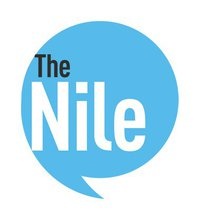We’ve heard about the end of literature countless times. New mediums of entertainment come along, a warning bell is rung somewhere and everybody throws up their skirts and runs around yelling ‘the book is dead!’
Recently, talk about the Armageddon on literature has gotten a little more specific. An article in the New Yorker has brought up the possibility of the end of the picture book. This particular piece has spread far and wide and sparked plenty of debate, as such statements are prone to do.
According to the article, parents are responsible for this. Mothers and fathers are so keen for their children to thrive intellectually that they discourage kids from reading picture books in favour of more ‘text heavy’ volumes. Parents think their kids can ‘do better’ than simple picture books. As a result, it seems that the picture book is languishing on bookshelves and under beds worldwide.
I find this notion utterly ludicrous. Picture books may not be full of text but are still challenging, interesting and worthwhile for children to read. Pretty much everyone I know, regardless of their reading habits now, can fondly remember their first few picture books, and consider them prized objects, fully wrapped in nostalgia. The article itself mentions that picture books have proven educational value.
When you think about it, picture books are full of essential life lessons. Take some of the classic fairytales, for instance. Cinderella teaches kids to be home by midnight, a lesson parents will be desperately waving in the faces of their children in about twelve years’ time. Snow White teaches acceptance and love for all people, no matter how short they are. My favourite fairytale has always been Sleeping Beauty. What does it teach kids? Well… if you’re at a party and you start seeing your ‘fairy godmothers’, it might be time to avoid the punch bowl.
And it’s not just fairytales. What about The Owl and the Pussycat! Another story I loved and it’s about 140 years old. An Owl and a Cat in love- if they can make it work, perhaps one day we will see a lasting union between a Mac user and a PC user.
Maybe the solution is to give parents what they want and weave some adult concepts into the worlds’ favourite picture books. A promising new genre could surface from this.
For example, in Where The Wild Things Are, young Max can still wander through his dream world- the difference is, he has A Brief History of Time uploaded onto his Kindle and can’t find any explanation for this ‘alternate universe’ stuff.
In the latest installment of Spot, entitled Spot Goes to the Circus, Spot the dog does indeed go to the circus, but he finds the whole concept so tiresome and bourgeois that he walks out during intermission.
Let’s not forget another of my favourites, Madeline. With a bit of tweaking, Madeline remains a French schoolgirl but she’s got a raging Ibuprofen addiction and has just read The Female Eunuch so is not to be trifled with.
And The Little Engine That Could? Well, he supposes he could, but what would be the point? This life is meaningless!
All of the above is absurd, of course. The point I’m making is: why push children toward more advanced works, filled with more mature concepts? Parents doing this shouldn’t be criticised for it; they only want the best for their child. However, children have their whole lives to spend being adults, grappling with grownup ideas, striving for this and trying to achieve that.
What’s wrong with devoting a childhood to exploring the exquisite stories of Graeme Base, Maurice Sendak and Mem Fox? What’s wrong with being young and knowing nothing of the world but what you can find in a picture book?
Lisa Down is in charge of the social media for Australian online bookstore The Nile and a contributor to their blog, Swimming in the Nile. She has been a passionate booklover for as long as she can remember, and her favourite childhood picture book is a tie between Madeline and Just Another Ordinary Day.


